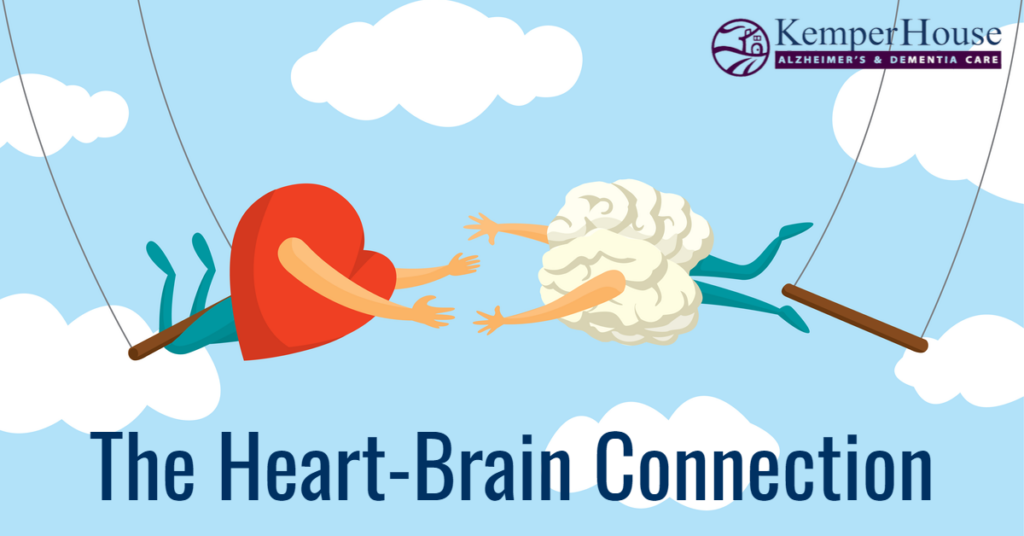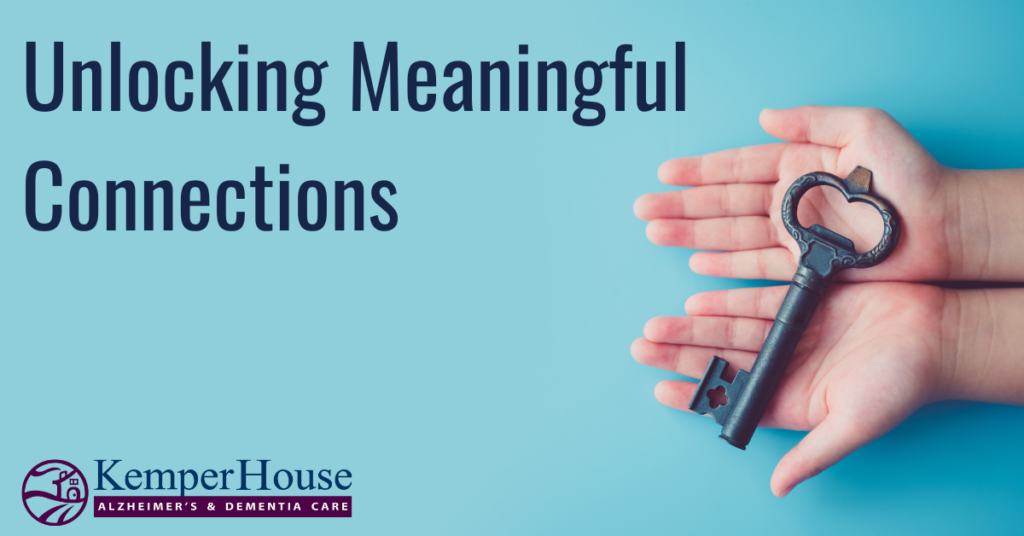
The Heart-Brain Connection
Here at Kemper, we are big on working with the connections within the body and have come to understand just how important the proper function of one bodily process can affect another. We are constantly looking for new information that can help improve the well-being of both our residents at the Kemper Houses as well as our clients at Kemper Cognitive Wellness. One such connection we are looking at this month is the heart-brain connection.
While thinking about your valentine may set your heart aflutter, negative emotional factors such as stress or depressive disorders can have a long-term impact on overall cardiovascular health. There are two kinds of stress that impact your brain. Helpful stress (also known as eustress) can assist you with getting things done by helping you focus your attention. Unhelpful stress (distress), on the other hand, can be so severe that it can lead to fatigue and heart disease. *
The quality of communication between the heart and brain is increasingly being recognized as key to our ability to age in a healthy way. Our emotions change the signals that the brain sends to the heart- and the heart responds to the brain in complex ways. Both organs actually depend on and influence each other’s function every moment in every day, very much like how you harmonize with someone when doing a duet.
Research shows that cardiovascular conditions can lead to negative psychological states such as depression and vice versa with negative psychological states affecting our cardiovascular health. There are good associations between positive psychological health and decreased cardiovascular disease risk.
Untreated conditions such as depression or an anxiety disorder can lead to inflammation within the heart, increased blood pressure, and atherosclerosis, a disease of the arteries that can lead to coronary heart disease.
We have learned, however, that communication between the heart and brain actually is a dynamic, ongoing, two-way dialogue, with each organ continuously influencing the other’s function. Research has shown that the heart communicates to the brain in four major ways: neurologically (through the transmission of nerve impulses), biochemically (via hormones and neurotransmitters), biophysically (through pressure waves), and energetically (through electromagnetic field interactions).* Communication along all these conduits significantly affects the brain’s activity. Moreover, our research shows that messages the heart sends to the brain also can affect performance.
So how can you balance your heart-brain connection? Well, the secret lies in not trying to balance them but integrating them instead. There are numerous ways to decrease negative psychological health and increase positive psychological health. For starters, Mindfulness has been shown to lead to better cardiovascular outcomes. Other mind-body practices you can try are yoga, breathwork, and meditation. Research shows us that these interventions can lead to a better cardiovascular prognosis because meditation and breathwork increase the production of GABA which is a neurotransmitter that reduces the stress hormones dopamine, adrenaline, and noradrenaline. In essence, GABA helps us relax and allows our bodies to return to a restful state, thus decreasing the amount of stress we hold onto in both our minds and our bodies.
So the next time you’re feeling stressed, anxious, or panicky, try listening to this 10-minute guided Heart-Brain Connection Meditation at home.
-Jennifer Nance, M.Ed, C.Ht, SMC-C
*Reference: health.harvard.edu (Harvard Health 2019)


